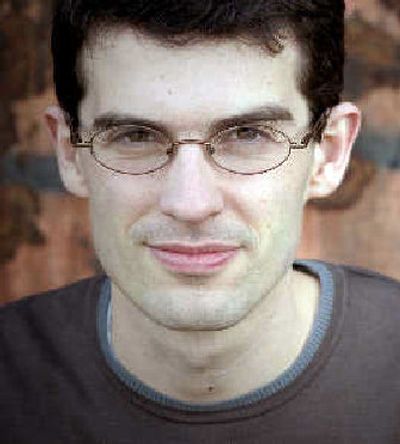‘Urban Dictionary’ simplifies slanguage

It’s 3 a.m. in the Silicon Valley and Aaron Peckham has been jarred from his slumber.
Another nightmare. No, even worse, a workmare – a nightmare about work.
This time it’s the “Urban Dictionary.”
The people in his dream spoke in a language where every word ends in Snoop Dogg “-izzles” and instead of laughing, everyone just said “l-o-l,” computer speak for “laughing out loud.”
And no one could understand Peckham; the words came off his tongue sounding Latin.
Peckham is a software engineer at Google, the author of the new “Urban Dictionary” and the inventor of its predecessor, urbandictionary.com. Work is never done when his head hits the pillow.
“I dream about work a lot,” Peckham says.
He didn’t know some people called them “workmares” until it ended up on urbandictionary.com.
Peckham was 18 when he launched the Web site from his dorm room at California Polytechnic State University. Since 1999, the site has gone “off the heezy” in terms of reputation.
It has more than 250,000 slang words, all collected through reader submissions online. The book, released in October, puts more than 2,000 of them in print.
The millions of visitors who click on urbandictionary.com aren’t bombarded with credit card pop-ups.
“That’s because I don’t want to report to investors or an advertiser,” Peckham says. “I never made “Urban Dictionary” to be a moneymaker. It’s a self-sufficient ecosystem in terms of finance.”
These days Peckham runs urbandictionary.com with a large clan of volunteer editors who follow his guidance and filter as many as 2,000 slang submissions each day.
In a recent phone interview, Peckham didn’t pepper his words with slang from his book. His professional tone matched the dress shoes and tie he wears to work every day at Google.
“Of course I speak different around my friends,” he says. “They give me a hard time for using instant-message lingo (like lol) in normal conversations.”
With slang growing at the speed of the Internet, Peckham is among the first to keep track of popular computer lexicon, including all the different :) faces we use.
Another relevant entry: “Google-fu,” the ability to quickly get answers to any question using the Google search engine (think kung fu).
In the introduction to the book, Peckham calls his dictionary “a resource for parents trying to understand their kids, for language learners confused by real-world English – but most of all for your entertainment.”
Peckham’s parents affectionately call “Urban Dictionary” his “big book of cuss words.”
But he sees his work being as important as Oxford or Webster’s dictionaries, pointing to a judge in the United Kingdom who used urbandictionary.com in a court case.
“This stuff defines our cultures,” Peckham says. “What’s slang here is everyday language in another part of the world. That’s what’s cool about it. Everyone’s definition can come together in one place.”